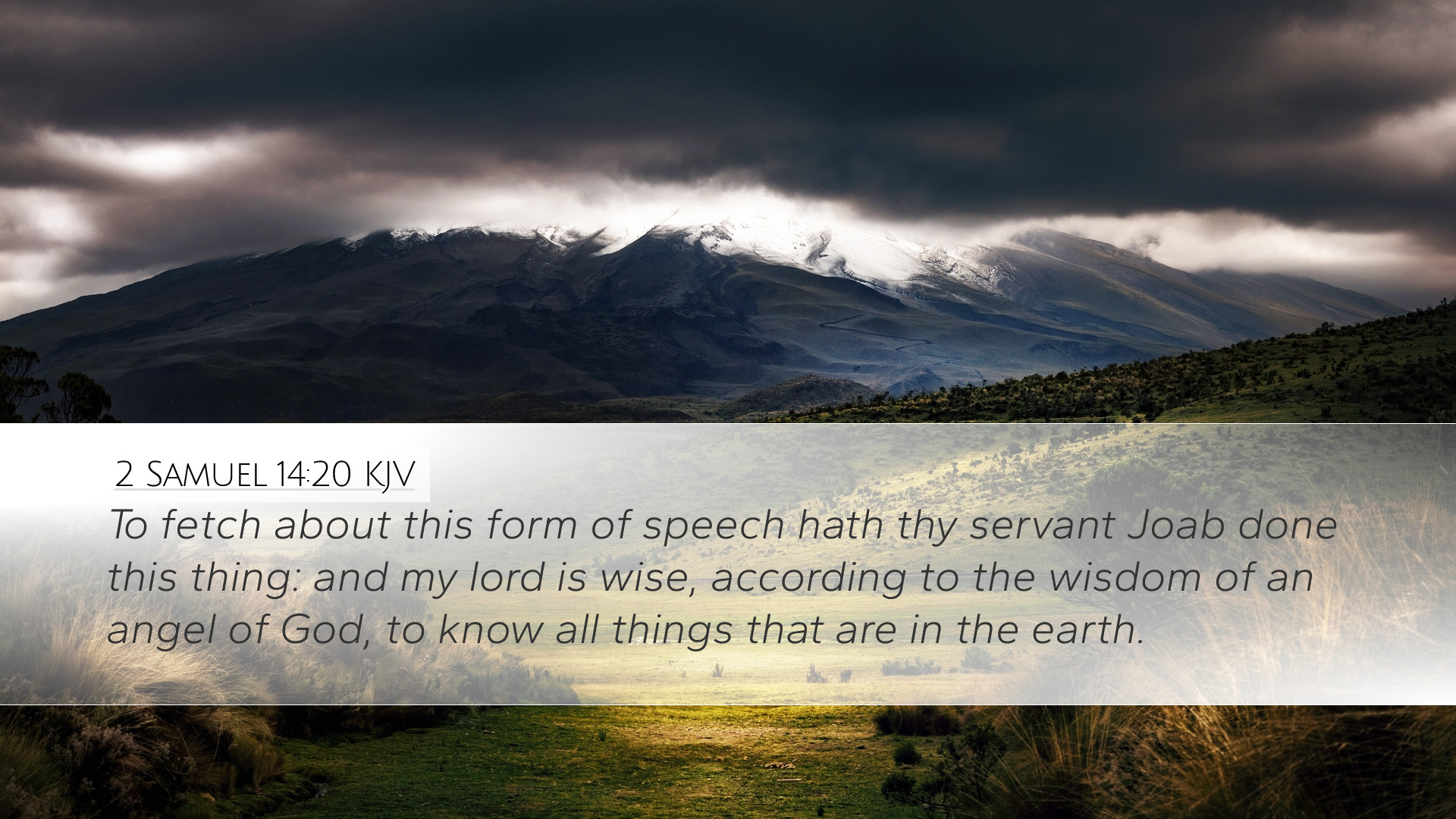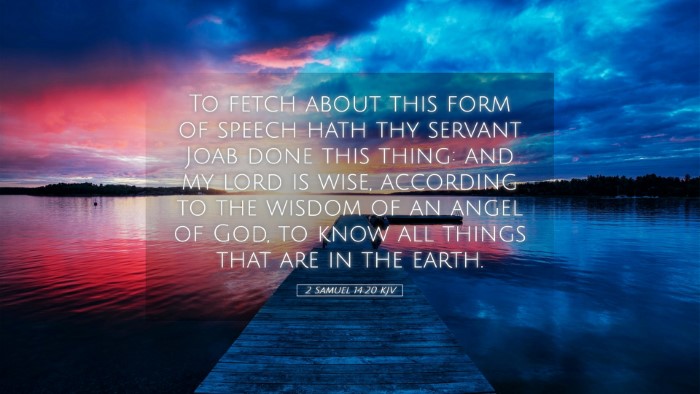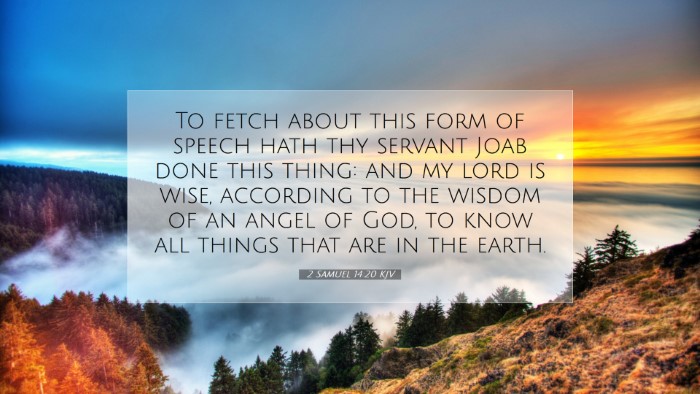Commentary on 2 Samuel 14:20
Verse Reference: 2 Samuel 14:20 - "To fetch about this form of speech hath thy servant Joab done this thing: and my lord is wise, according to the wisdom of an angel of God, to know all things that are in the earth."
Contextual Background
This verse is situated in a narrative where Joab, David's military commander, orchestrates a plan to bring about a reconciliation between King David and his estranged son Absalom. The background of this reconciliation is critical to understanding the weight of Joab's actions and the wisdom attributed to David in this moment.
Historical and Literary Context
- Family Dynamics: The estrangement between David and Absalom arose from Absalom's vengeful act of killing his brother Amnon. This act led to Absalom fleeing and remaining in exile, highlighting a fractious family relationship.
- Political Undertones: The reconciliation was not merely personal; it had significant political consequences. A unified royal family would fortify David's rule in the face of potential insurrection.
- Joab's Role: Joab, acting as a mediator, employs a wise and shrewd strategy to influence David's heart, showcasing his understanding of the king's psyche and political instincts.
Exegetical Insights
Examining the language of the text reveals much about the subtleties of both Joab's character and David's situational wisdom.
Joab's Craftiness
Matthew Henry notes that Joab's planning was not just mere flattery; rather, it communicated a keen awareness of legal and emotional complexities in David's heart. This suggests that Joab’s methods, although shrewd, aimed at restoring harmony. His acknowledgment of having “fetched about this form of speech” indicates an astute manipulation of rhetorical tactics.
The Wisdom of David
In calling David wise "according to the wisdom of an angel of God," Joab conveys profound respect for the king's ability to discern truth in complex situations. Albert Barnes comments on this aspect, highlighting that recognizing an angelic wisdom points to divine involvement in governance and judgment. This emphasizes the theological belief that God gives wisdom to righteous leaders.
Implications for Leadership
The reverence for David’s wisdom invites reflection for leaders today. Are they relying on wisdom from above when navigating complex interpersonal or political challenges?
Theological Reflections
This passage gives rise to several theological themes that are particularly salient for pastoral and scholarly reflection.
1. Sovereignty and Human Agency
Adam Clarke elucidates the intricate interplay between divine sovereignty and human action in leadership. While Joab acts from his agency to influence David, it is ultimately God's will that prevails in the restoration of Absalom. This serves as a reminder that while leaders have formidable responsibilities, they must submit to God's overarching governance.
2. The Nature of True Wisdom
The description of David's wisdom invites a deeper examination of what constitutes true wisdom in our biblical understanding. It is not mere knowledge or intelligence but is deeply rooted in discernment aligned with God’s principles and character. As such, leaders are encouraged to seek this divine wisdom in their decision-making.
Application for Today's Leaders
Pastors and church leaders are challenged to cultivate this wisdom, engaging in prayer and scriptural reflection to guide their pastoral care and community decisions.
Conclusion
2 Samuel 14:20 encapsulates a profound narrative moment where the themes of wisdom, reconciliation, and divine sovereignty converge. Joab's cunning actions highlight the importance of interpersonal relationships in leadership, while David's wisdom exemplifies an ideal for contemporary leaders seeking to navigate the complexities of ministry and governance.
This verse both challenges and uplifts; it admonishes that while human strategies are evident, they must always align with divine purposes for true restoration and peace.


